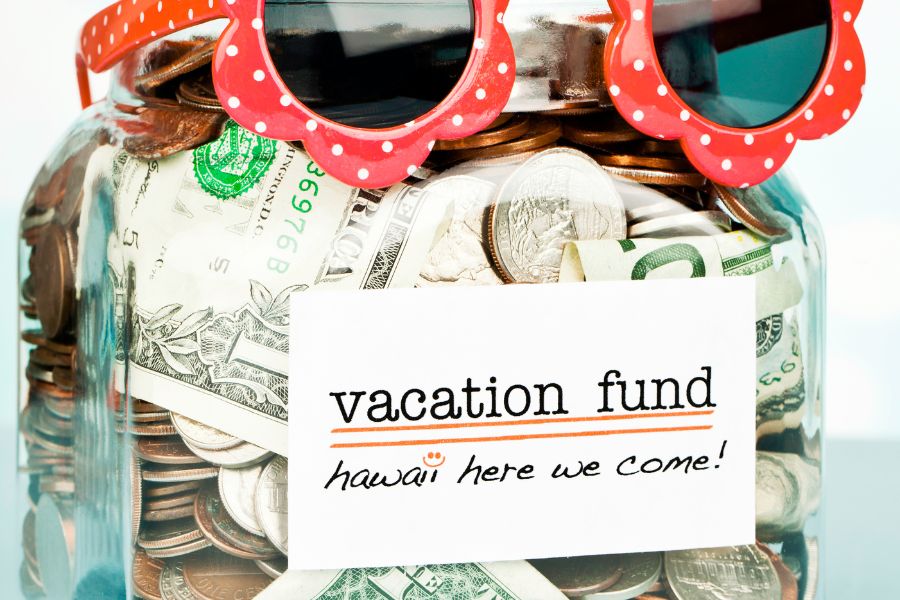Planning your next travel expedition can be both exciting and stress-inducing, especially when it comes to finances. For budget travellers and financially savvy adventurers alike, mastering the art of travel budgeting is essential.
This blog post is your ultimate guide to navigating the financial maze of travel planning. From adopting a budget-friendly mindset to managing your finances on the road, we’ve got you covered.
Read on to discover practical tips and strategies that will help you make the most of your travel experiences without breaking the bank.
The Right Mindset
Why Your Attitude Matters
Your attitude towards spending can make a significant difference in how you manage your travel budget. Adopting a frugal mindset doesn’t mean depriving yourself of enjoyable experiences; it means prioritizing value and seeking cost-effective alternatives.
This approach encourages mindful spending, where you focus on what truly enriches your travel experience instead of impulsively splurging on unnecessary luxuries.
By maintaining a disciplined and practical attitude, you can ensure that your funds last longer, allowing you to explore more destinations and create lasting memories without financial stress.
Prioritize Experiences Over Luxuries
When planning your travels, prioritize experiences over luxuries. Invest in activities that offer genuine enrichment, such as local tours, cultural events, or scenic nature hikes, rather than spending extravagantly on upscale accommodations or fine dining.
Experiencing the local culture and landscapes provides more lasting value and memories than temporary comforts. By focusing on activities that enhance your journey, you’ll make the most of your budget while creating richer, more meaningful experiences.
Be Open to Alternatives
Being flexible with your plans can lead to significant savings. Instead of committing to peak travel seasons or mainstream tourist spots, consider off-peak times and lesser-known destinations.
This flexibility can help you avoid inflated prices and crowded places, offering a more authentic and affordable experience. Additionally, explore different modes of transportation and types of accommodation.
Public transport, hostels, or vacation rentals can provide cost-effective and enriching alternatives to more expensive options, allowing you to stretch your budget further while still enjoying your journey.
Pre-Trip Budgeting
Determine Your Travel Budget
Knowing the estimated costs of your travel destination is crucial for effective budgeting. Start by researching the average prices for accommodation, food, transportation, and activities in the area.
Websites, travel forums, and budgeting apps can provide valuable insights. Additionally, always have a financial backup plan. If you find yourself in need of extra funds, ask yourself: Where can I find trusted title loans near me or at my destination?
These can be a quick solution for unexpected expenses, but it’s important to use them wisely and understand the terms fully. Proper research and preparation can prevent financial surprises and ensure you stay within your budget.
Set Financial Goals
Setting financial goals for your trip involves breaking down your overall budget into specific categories.
Allocate funds for major expenses like flights and accommodations first, then designate amounts for daily needs such as meals, local transport, and activities. Include a contingency fund for emergencies or unexpected costs.
Being clear about your financial targets helps keep you on track and ensures you allocate your resources wisely throughout your journey.
Research Costs in Advance
Researching costs in advance is essential for effective travel budgeting. Look up average prices for accommodations, food, transportation, and activities at your destination.
Use travel forums, budget guides, and cost estimation tools to gather accurate information. This preparation helps you anticipate expenses and plan accordingly, minimizing financial surprises during your trip.
Smart Saving Techniques
Create a Dedicated Travel Fund
Creating a dedicated travel fund is a straightforward way to save for your trip. Open a separate savings account specifically for travel expenses and set up automatic transfers from your main account.
This separation helps prevent you from dipping into these savings for non-travel-related expenses.
Consistently contributing to this fund, even with small amounts, adds up over time, ensuring you have the necessary funds when it’s time to embark on your adventure.

Automate Your Savings
Automating your savings is a simple yet effective way to ensure you consistently put money aside for your travels.
Set up automatic transfers from your primary bank account to your dedicated travel fund. This can be done weekly or monthly, depending on your income schedule.
By doing this, you remove the temptation to spend these funds and make saving a seamless part of your financial routine.
Over time, these automatic contributions can significantly boost your travel savings with minimal effort.
Cut Unnecessary Expenses
Cutting unnecessary expenses is crucial for boosting your travel fund quickly. Analyze your current spending habits to identify areas where you can trim costs.
This could mean brewing your own coffee instead of buying it, dining out less frequently, or cancelling unused subscriptions. Redirect the money saved from these small sacrifices into your travel fund.
The cumulative effect of these changes can significantly increase your savings, allowing you to reach your financial goals for your travel expedition faster.
Maximizing Travel Rewards
Utilize Loyalty Programs
Sign up for loyalty programs offered by airlines, hotels, and even car rental companies. Accumulating points can lead to significant savings on future trips.
Leverage Credit Card Rewards
If you have a credit card that offers travel rewards, use it for your everyday purchases. Just ensure you pay off the balance each month to avoid interest charges.
Redeem Points Wisely
Plan strategically when redeeming your points. Sometimes it’s better to save them for high-value rewards like international flights or luxury accommodations that you wouldn’t otherwise splurge on.

Planning Affordable Itineraries
Choose Budget-Friendly Destinations
Not all destinations are created equal when it comes to cost. Research and choose places known for being budget-friendly yet rich in culture and experiences.
Plan Off-Peak Travel
Travelling during off-peak seasons can result in significant savings on flights and accommodations. Plus, you’ll likely enjoy a less crowded, more authentic experience.
Mix Free and Paid Activities
Balance your itinerary with a mix of free and paid activities. Many destinations offer incredible free attractions like parks, museums, and cultural events.
On-the-Road Financial Management
Track Your Spending
Use apps to keep track of your daily spending. This helps you stay within your budget and adjust your spending if necessary.
Use Local Currency
When travelling, always try to use the local currency. Using your credit card might incur foreign transaction fees, and exchanging money at airports can come with hefty charges.
Avoid Impulse Purchases
It’s easy to get carried away with souvenirs and spontaneous adventures. While it’s important to have fun, keeping impulse purchases in check ensures you don’t blow your budget.

Financial planning is a crucial component of any travel experience, ensuring you can enjoy your adventure without the stress of overspending.
By adopting a budget-friendly mindset, setting clear financial goals, and utilizing smart saving techniques, you’ll be well on your way to creating memorable and affordable travel experiences.
Remember, the best adventures are those that leave lasting memories without leaving you in debt.


















